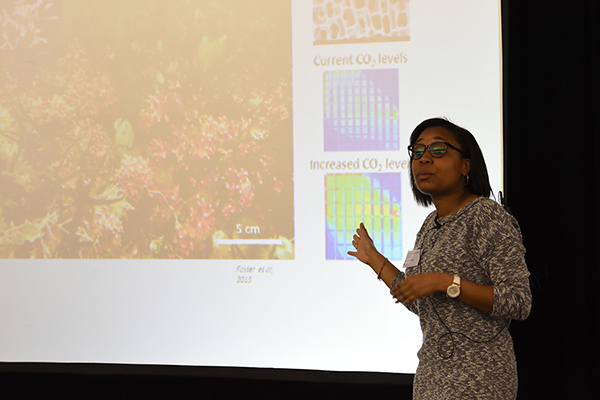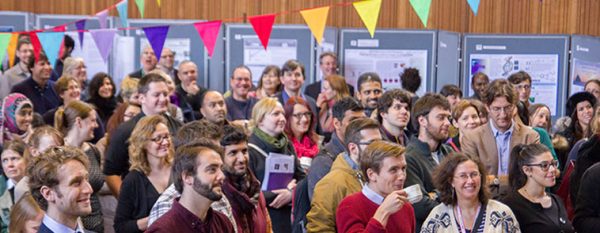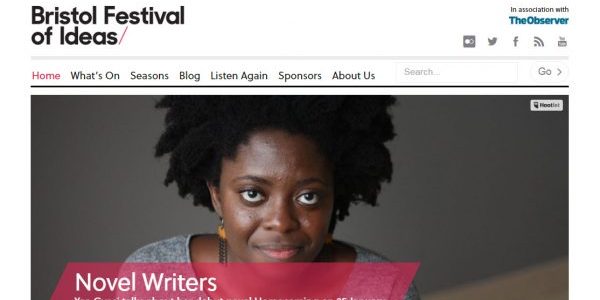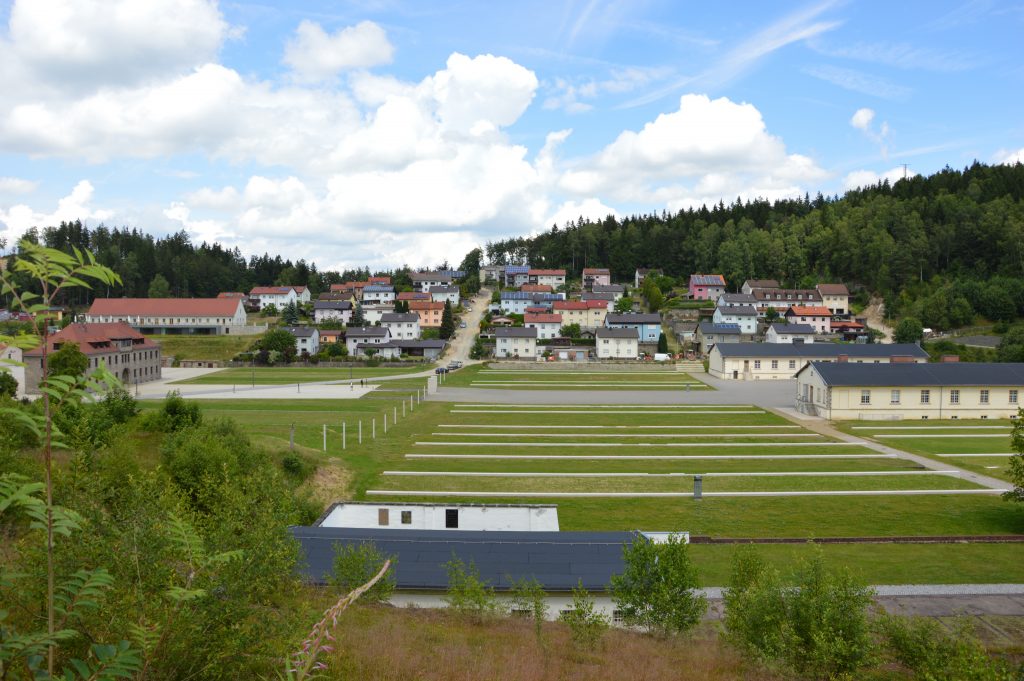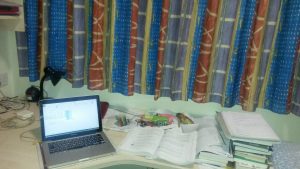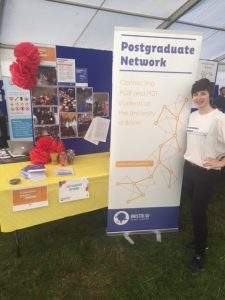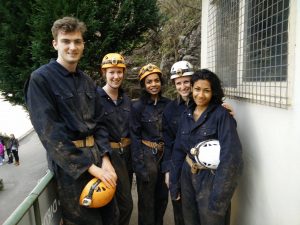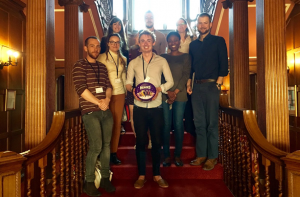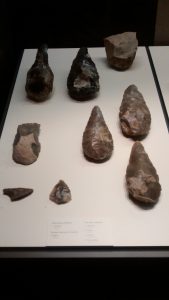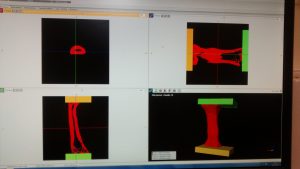Leanne Melbourne is a postgraduate researcher in the School of Earth Sciences. She took part in Research without Borders 2016, both in the showcase exhibition and the 3MT finals. We asked her to share her highlights and why students should get involved this year.
Last year I was lucky enough to participate in the Research without Borders showcase event at At-Bristol. The event was an amazing experience which allowed me to present my research in a fun, friendly format to not only members of the university but also the wider community of Bristol who were just as fascinated and interested in my work as I am.
I also sat in on really informative discussions themed on “digital living”, and took part in the 3MT finals. The latter was a fun but nerve-wracking experience. Standing in front of an audience and condensing three years’ work into three minutes is a daunting task, but definitely enjoyable. One thing it did was help me to really think and distil the main points of my PhD, which is definitely going to help me in my final stages of thesis writing. The whole event was busy, and I didn’t get to see everything. It was quite hard to leave my display as I was too engrossed in talking to lots of different people about my research, but I was able to hear lots of different thoughts and opinions that I wouldn’t normally hear. The discussion on ‘what will cities look like, and how will we, as citizens, live together?’, led by the University Research Institutes, really opened my eyes to the diverse views out there.
For me the training sessions were one of the highlights about taking part. They started with a special session using Lego. Who doesn’t love Lego? We had to use the Lego to explain our research and then try and create links with the other researchers around us. So while my research focuses on climate change in the ocean and its impact on seaweeds, I had to find a link with someone who researches CF4 emissions and explain this link using Lego. As researchers we are all used to writing our research in 300 word abstracts using a whole load of jargon to be able to get in as much detail as possible. Try writing your research in 140 characters that anyone would be able to understand! Yes indeed — we had to sum up our research in a tweet. 140 characters isn’t much, but it really helped me think about the highlights of my research and its important questions. These activities also helped us to find links with each other that we wouldn’t normally see whilst trying to look past research groups, departments, faculties and research institutes; essentially, getting us to think across borders(the main aim of this event).
What I also really liked was that we had the final say of where we were on the day and how we were positioned, and that this wasn’t distinguished by our research groups or departments. I ended up next to a researcher who looks at camouflage; it just so happens that he was at the time looking at camouflage on reef fishes so we had the link of ‘water’. I would never have known about his fascinating research without this event.
That’s what is truly great about taking part in Research without Borders: it gives you the chance to think about your research in a different light. As researchers, we can get bogged down in the nitty-gritty of our topic, but participating in the festival – especially the showcase exhibition – reminds you of the bigger picture of why you got involved in the first place. It’s also an opportunity to meet lots of different students from diverse fields all at various stages and hear about the amazing research going across the university. This event is all about breaking barriers, crossing borders, meeting and talking to people you may never have even thought would have some link to your research.
If it wasn’t for the fact that I’ll be in the final stages of writing my thesis, I would definitely apply again.
Sign up for this year’s Research without Borders by February 28.
